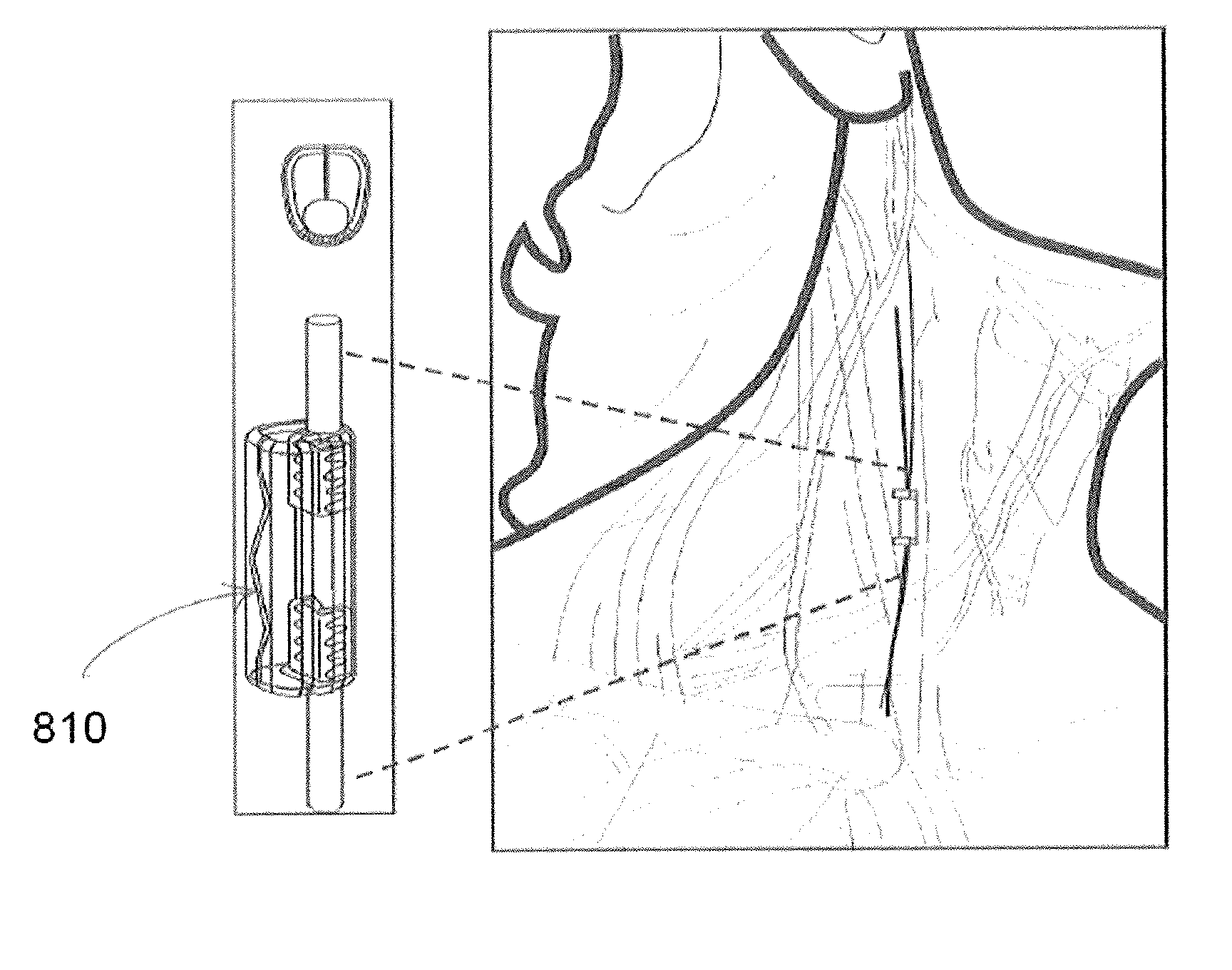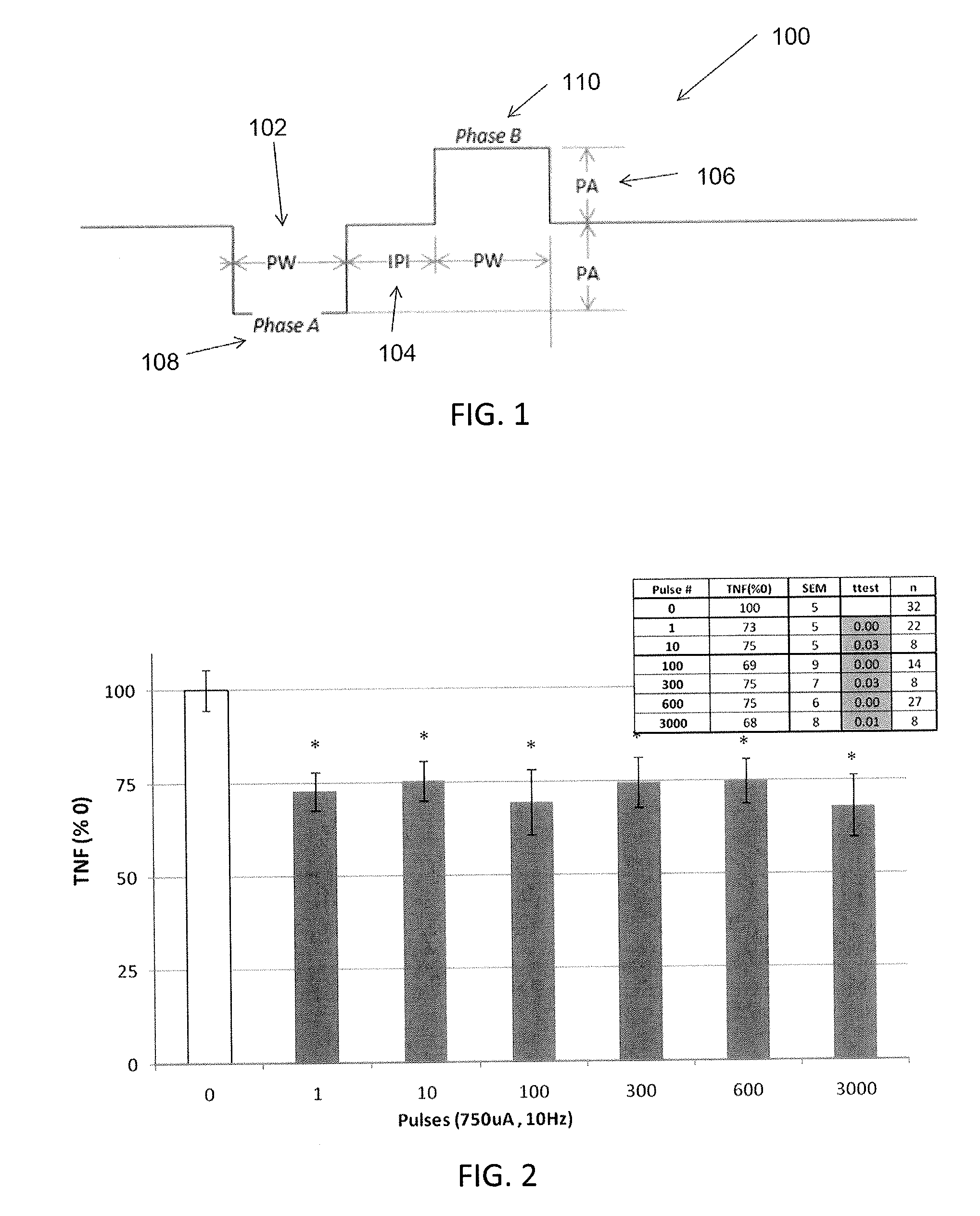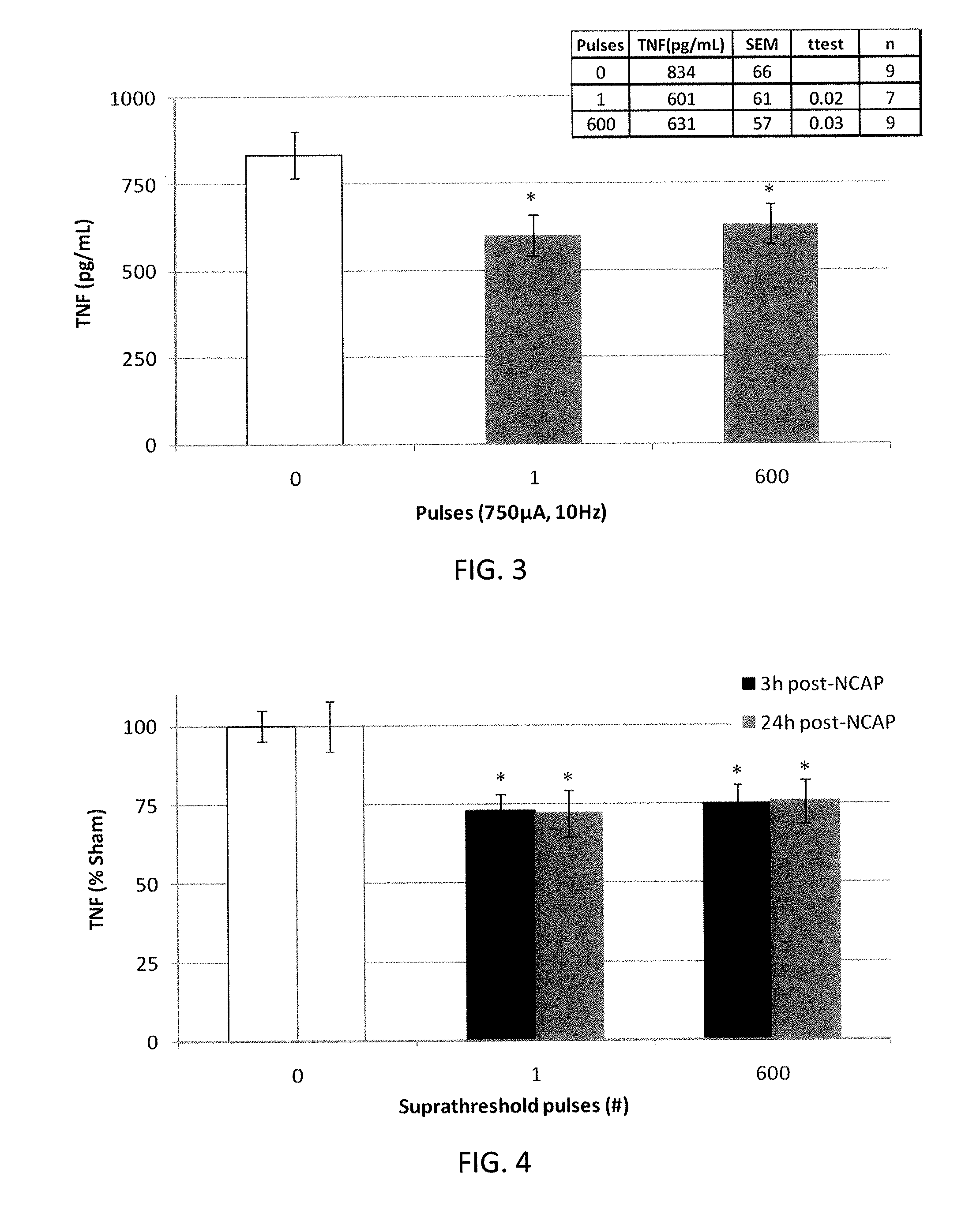Extremely low duty-cycle activation of the cholinergic anti-inflammatory pathway to treat chronic inflammation
a cholinergic anti-inflammatory and chronic inflammation technology, applied in the field of system and device for treating disorders, can solve the problems of difficult to stably position such devices in the proper position with respect to the nerve, the design and implementation of such a chronically implantable and usable stimulator has proved elusive, and the effect of low power consumption
- Summary
- Abstract
- Description
- Claims
- Application Information
AI Technical Summary
Benefits of technology
Problems solved by technology
Method used
Image
Examples
Embodiment Construction
[0042]In general, described herein are systems, methods and devices illustrating extraordinarily low duty cycle stimulation of the vagus nerve to treat a disorder. In particular, described herein are systems, methods and devices illustrating extraordinarily low duty cycle stimulation of the vagus nerve to reduce or prevent inflammation and the effects of inflammation in a mammalian model. An extraordinarily low, extremely low, super low, or ultra low duty cycle refers generally to a duty cycle that provides stimulation using both a low number of electrical pulses per time period and a low stimulation intensity such that power requirements of the duty cycle are very low. The methods described herein apply various stimulation protocols that may be used to significantly reduce inflammation and / or the effects of inflammation. Simulation parameters that may be varied include the pulse shape (e.g., sinusoidal, square, biphasic, monophasic, etc.) the duration of stimulation, the on-time, t...
PUM
 Login to View More
Login to View More Abstract
Description
Claims
Application Information
 Login to View More
Login to View More - R&D
- Intellectual Property
- Life Sciences
- Materials
- Tech Scout
- Unparalleled Data Quality
- Higher Quality Content
- 60% Fewer Hallucinations
Browse by: Latest US Patents, China's latest patents, Technical Efficacy Thesaurus, Application Domain, Technology Topic, Popular Technical Reports.
© 2025 PatSnap. All rights reserved.Legal|Privacy policy|Modern Slavery Act Transparency Statement|Sitemap|About US| Contact US: help@patsnap.com



